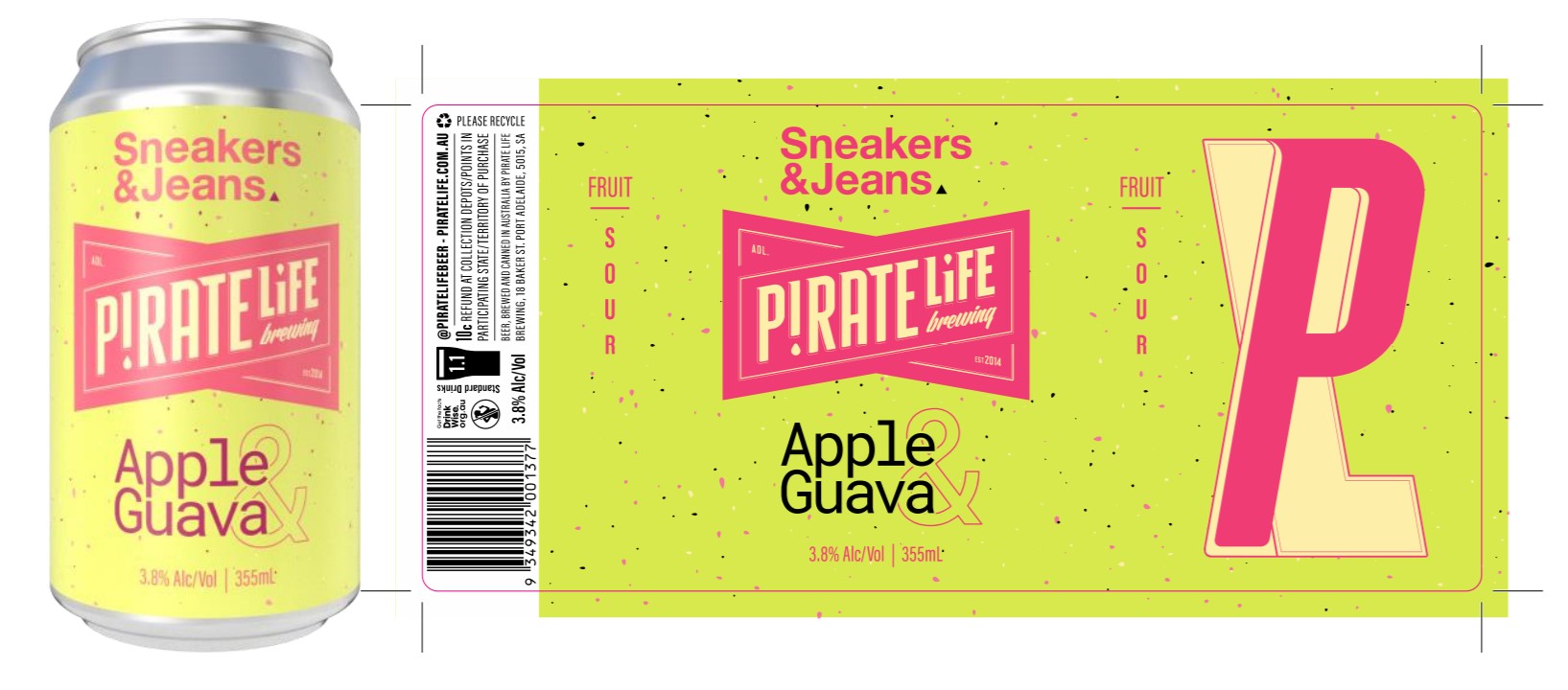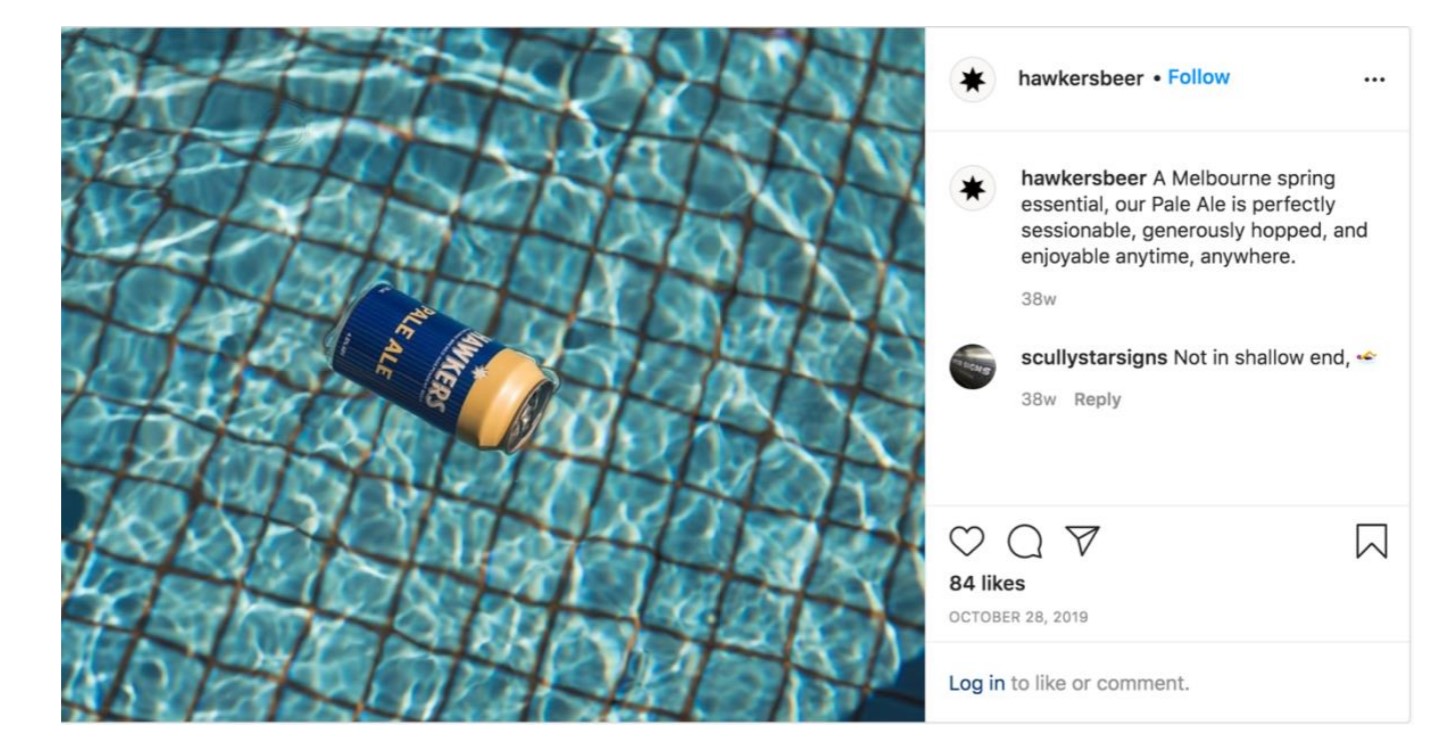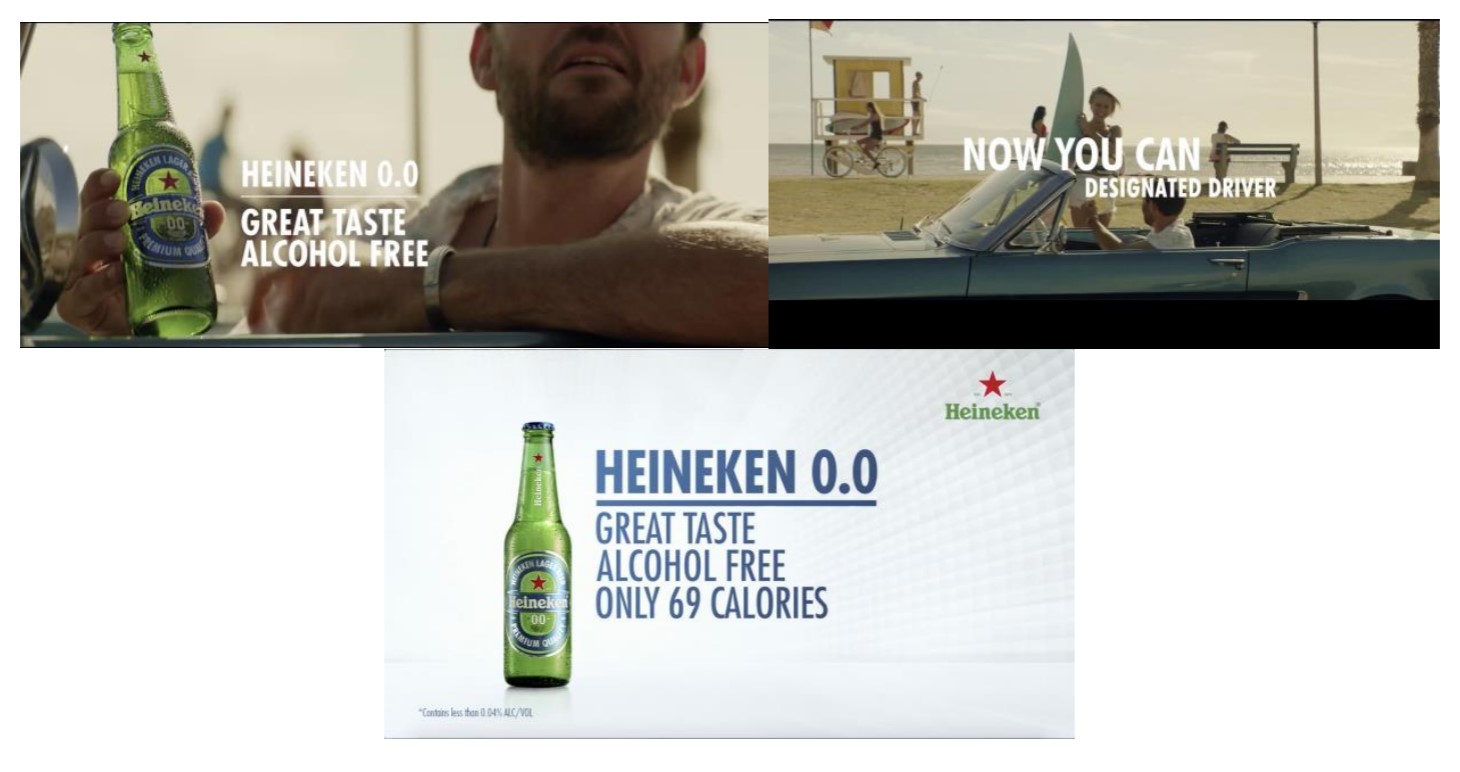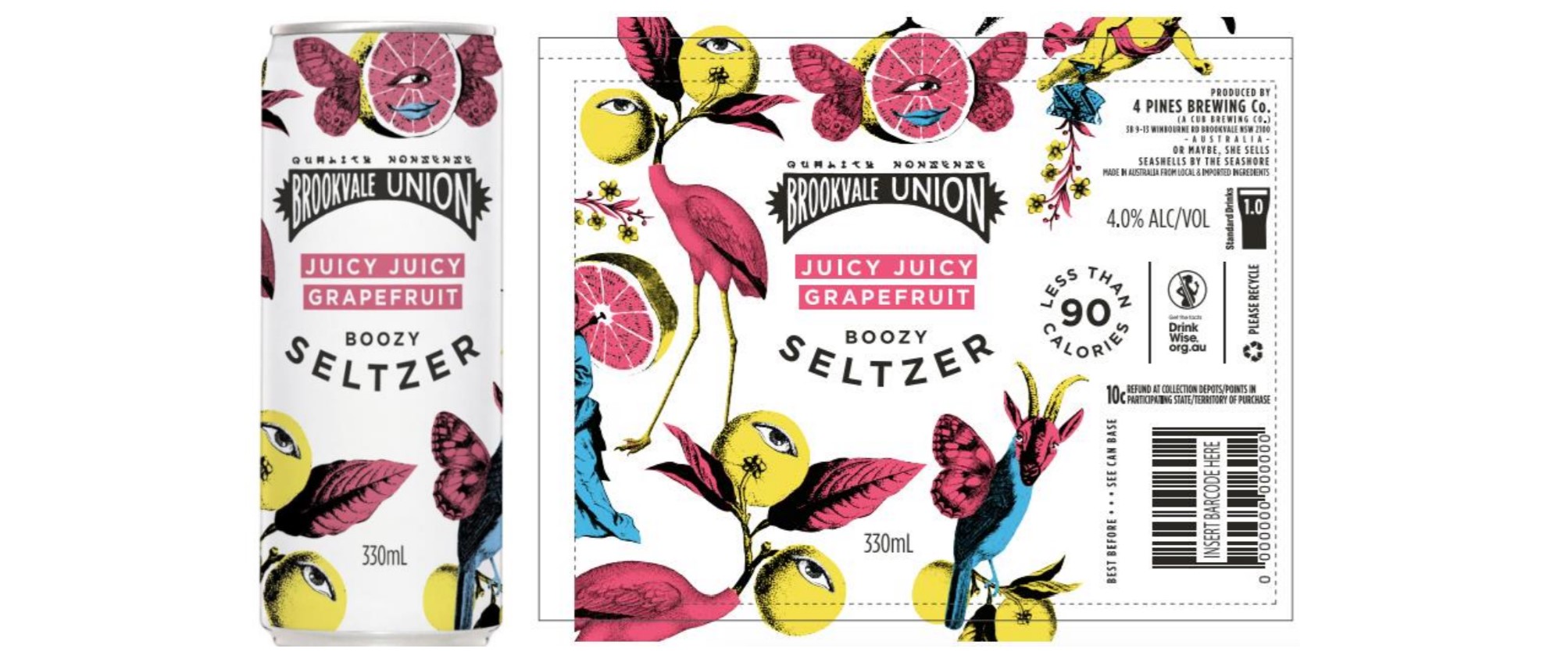
Close calls as ABAC beer complaints dismissed
An ABAC panel has made a quartet of judgements on Pirate Life, Hawkers Beer, Brookvale Union and Heineken marketing communications after a stint in which brewers were largely absent from complaints.
The wide-ranging judgements cover social media posts, packaging and a television advertisement featuring Heineken 0.0, the latter highlighting the confusion over marketing non-alcoholic brands which are associated with alcoholic beverages and companies.
Pirate Life
Pirate Life has received regular complaints about the packaging of its sour beer range, and its latest is in the same vein.
The subject of the complaint was the South Australian brewer’s Apple & Guava sour beer which was produced in collaboration with Sneakers & Jeans, the hospitality group which the brewery is collaborating with for its new Perth venue.

The unnamed complainant said the beer’s packaging appealed to minors, which is banned under the ABAC scheme, because its packaging comes in bright colours. They said that Apple & Guava is a popular juice flavour and thus the beer could be easily mistaken for a soft drink or juice product.
Pirate Life noted in its response that a number of other complaints made against its beers, including single and double Acai & Passionfruit, Kiwifruit & Cherry, and Lemongrass & Ginger, were dismissed.
The brewery said it was part of the brewery’s sour beer roster and follows the “Pirate Life brand family visual identity” – which it said was so distinctive that it is clearly part of the Pirate Life family of beers.
Pirate Life asserted that the abv and fruit sour beer style were prominent on the design, and said that its colourway does not hold inherent appeal to children over and above its appeal to adults. The flavour combination is also common in the fruit-flavoured cider and RTD categories, it said.
Pirate Life owner CUB reiterated its commitment to ensuring that its promotional and marketing material and that of its associated entities does not promote or encourage any irresponsible consumption of alcohol. It said it had taken all reasonable precautions to ensure the packaging is compliant with the ABAC scheme.
An ABAC panel responded saying that while some of the company’s arguments can be accepted, others have less force – such as the claim that the company’s name would be “immediately recognised” by a member of the community.
The panel said that the term fruit sour might be well known to dedicated beer drinkers, the term might have less resonance in the wider community without additional packaging cues.
ABAC does not contain a free-standing provision that alcohol products must be clearly identified as an alcoholic beverage, but it may be a possible factor in judging whether it could be appealing to minors or confused with a soft drink, the panel said.
Each case should be judged on its own merits with the benchmark being how a reasonable person would understand the marketing communication, explained the panel.
It concluded that while the packaging does not unambiguously establish the product as an alcoholic beverage, it cannot be fairly accepted as breaching the standards.
Its format in a can protected it somewhat from confusion with a soft drink, with the ABAC panel suggesting that fruit juice is more often packaged in plastic bottles or prima packs. In addition, its colour palette does not resemble the packaging of fruit drinks, and is “reasonably sedate” enough to not obviously appeal to minors. The panel dismissed the complaint.
Hawkers Beer
Another complaint related to a social media post from Melbourne brewery Hawkers Beer, which was posted back in October 2019.
The complainant objected to the Instagram post saying that showing a beer floating in a pool sends the wrong message “regarding drinking in a safe space”.

ABAC stipulates that a marketing communication must not show the consumption of an alcoholic beverage before or during an activity that requires a high degree of alertness of physical coordination, such as swimming.
Other brewers have fallen foul of this rule, such as Colonial Brewing Co. and Shifty Lizard Brewing Co., which the panel found less ambiguous in their relationship to the code than the Hawkers complaint.
A response from Hawkers rebutted the claims, saying that the beer pictured was placed in a shallow fountain rather than a pool and there was no suggestion of any high-risk activity like swimming.
“I would normally let things go, but I feel given our company’s history of social responsibility and given the extent to which we have gone on all our branding, website, communication, and marketing to enforce responsible consumption of alcohol, I really need to address this,” Hawkers said in a statement to ABAC.
“None of our products have funny names nor have we ever used silly child-like graphics on any of our products. We have adopted the pregnancy warning from day one and before it was mandatory. This complaint is in our opinion a trolling attempt to waste our and your time. I hope the panel dismisses this so we can all move forward in our lives.”
The ABAC panel responded by saying that the code doesn’t ban a body of water being shown in alcohol marketing, but it cannot show or directly imply that drinking is acceptable before or during swimming.
It said that since 2014, it has made 13 separate decisions which take this section of the code into consideration, and has developed precedent to enable judging on the ruling.
In Hawkers’ case, it said that while the brewery explained that the water was a fountain rather than a pool, this is not necessarily apparent from the photograph.
However contextualising the post with its accompanying text, the panel decided that the most probable message a reasonable person would take from the post is not necessarily that there was swimming going on rather it suggests that people could participate in “spring-time activities”. It dismissed the complaint.
Heineken 0.0
A Heineken television ad was on the receiving end of an ABAC complaint for showing a man sitting in a convertible car sipping from a bottle of Heineken 0.0.

The complaint highlights the difficulties ABAC panels have encountered when considering complaints about non-alcoholic versions of brewery or other branded beverages which it calls alcohol brand extensions.
The complainant said they were concerned that the advert promoted the product as alcohol free “when it is not actually alcohol free”. They said it could be dangerous as an alcoholic could consume it without knowing, or children may drink the product believing it is not alcoholic.
Heineken wrote to the ABAC scheme saying that Heineken 0.0 does not contain level of alcohol bove 0.5% abv, and is thus not classed as an alcoholic beverage under FSANZ – having a comparable abv to that of orange juice. It said that the low and alcohol-free beer category is growing rapidly domestically and globally, and Australian consumers will have increased awareness of alcohol-free options.
The ABAC panel said that it does cover non-alcoholic brand extensions, especially for brands as well known as Heineken.
It admitted that the code standards, which are designed for alcohol products, are “somewhat strained” when applied to non-alcoholic beverages. It said that had the advertisement featured a normal alcoholic Heineken beer, it would show them in control of a vehicle and therefore breach the code.
However it said the “common sense outcome” is that the ad does not breach the ABAC standard on drink driving.
ABAC does not regulate physical beverages, it explained, and looks at the labelling of a can or bottle rather than the alcohol itself and its characteristics.
The panel dismissed the complaint saying the advert would not have any particular attractiveness to minors beyond the appeal it has for adults.
Brookvale Union

4 Pines-owned Brookvale Union’s grapefruit seltzer was the recipient of another complaint, this time focusing on its use of the word ‘boozy’.
A complainant said that its use promotes drinking significant amounts of alcohol and signals a high percentage alcohol product.
The Juicy Juicy Grapefruit Boozy Seltzer comes in at 4.0% abv.
Carlton & United Breweries responded in an extensive on behalf of Brookvale as its parent company, arguing that the seltzer is not high in alcohol content, nor that the packaging promotes excessive drinking.
It said Brookvale Union has ‘quirky’ design elements which explained the packaging, and it also included the word ‘boozy’ on purpose to indicate that the seltzer – usually a non-alcoholic beverage – contained alcohol.
The ABAC panel agreed and said that a reasonable person is not likely to agree with the complainant’s interpretation of the term ‘boozy’ as encouraging excessive drinking. It dismissed the complaint.



